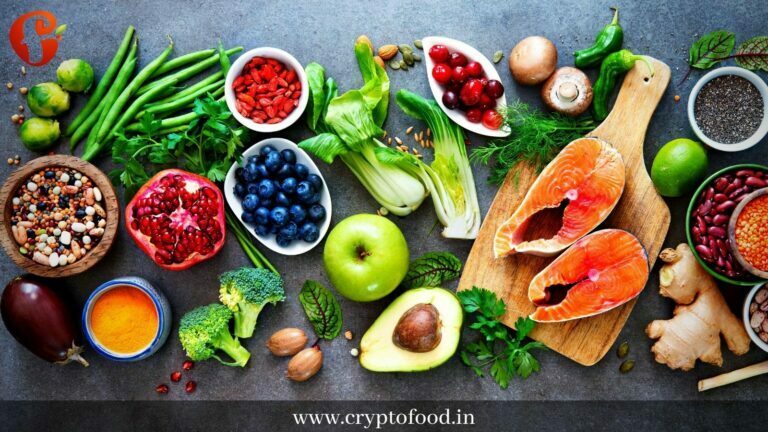Stress, hectic schedules, sicknesses, sorrow, and the daily grind can all affect our appetites and how our bodies manage hunger, resulting in us not eating enough diet.
Furthermore, many people who set a weight loss goal end up undereating or reducing their food intake to attain it.
Not eating enough diet food and depriving your body of essential nutrients may cause havoc with your metabolism and hormones, both of which can take a long time to show if you’ve been persistently undereating for your body type.
Let’s dig right in and look at the not-so-subtle indicators that your body isn’t getting enough essential protein, carbohydrates, or fat and what you can do to enhance your food intake with a well-balanced diet.
If you don’t eat enough, you may experience some of these symptoms:
Low Energy Consumption
It could be time to re-evaluate your diet if you’ve been feeling entirely exhausted for several weeks, regardless of how much sleep you get or the quality of your sleep. Energy can take many forms, and at NS, we don’t believe that energy is synonymous with calorie tracking. On the other hand, low energy levels are undeniably one of the most common consequences of not eating enough diet for calories.
Vertigo
One of the first indicators of not eating enough diet dizziness. When you don’t eat enough, your blood sugar levels drop, making you dizzy or faint. Drink lots of water throughout the day, or spice things up with a smoothie, unsweetened iced tea, or fruit-infused sparkling water.
A banana with almond butter, a handful of berries and nuts, or veggie sticks with hummus are good options for a quick snack boost. This carbohydrate and protein combination will assist in raising your blood sugar levels, which will help you feel more energised. If dizziness persists despite adopting these dietary and lifestyle adjustments, speak with your nutritionist or doctor to rule out any potential problems.
Low Productivity and Cognition (i.e. Brain Fog)
Have you ever had moments of forgetfulness and wondered, “Where did I leave my keys?” That happens to everyone, but persistent brain fog could be your body’s way of reminding you to pay attention to how you’re fueling yourself (i.e. eating)!
Brain fog is a symptom of various health problems, but it’s also one of the most common signs of not eating enough diet in a day. Lunches are postponed or interrupted to attend meetings or accept calls, which depletes the energy your body requires to keep going. If the 3 p.m. slump hits you hard and you realise you haven’t eaten in a while, it’s time to head to the kitchen or grab a snack.
Nail brittleness and hair loss
If you don’t eat enough food or obtain enough nutrients, your brain, heart, and other high-priority organs, such as your brain and heart, will take priority over your hair, skin, and nails in getting those nutrients.
If your body isn’t getting the nutrition it requires, you may notice a change in your physical look. Hair, skin, and nail health are inextricably linked to the foods you eat and the number of minerals, good fats, protein, and other nutrients your body absorbs.
Irritable Mood
Hunger is a natural feeling! If you have a busy day ahead of you and have to dash out the door without eating breakfast, your blood sugar and mood may suffer. Low glucose levels have been linked to hostility and violent behaviour in studies.
As a result, irritation may be one of the first apparent adverse effects of not ingesting enough calories when you haven’t eaten anything. Hunger can cause headaches, migraines, lightheadedness, and nausea and make you feel off your game or make you cranky.
Feeling frozen
To keep your body warm, you must ingest a certain number of calories. Those who eat a restricted diet have lower body temperatures than those who don’t. Women who are also underweight or have minimal body fat may produce “downy” hair (also known as lanugo).
You’re thirsty
Because several electrolytes in food, such as sodium, potassium, and magnesium, affect thirst, making sure you consume enough is one approach to maintain your hydration levels. If you’re still thirsty after drinking a glass of water, it’s a sign that you’re not getting enough calories. Your body might sometimes confuse thirst for hunger, leading you away from the water bottle. Avoid sugary energy and sports drinks and sodas, fruit juices, and sweetened coffee and teas.
Amenorrhea
It is a condition in which a woman’s uterus, hormone levels, and hence your period, is affected. Amenorrhea can also occur if you don’t eat enough and have a low body fat percentage or are underweight — roughly 10% under “normal” weight, which varies by individual.
Being Underweight can prevent ovulation and induce irregular hormonal changes, so some women with disordered eating habits or high-performing athletes may miss their periods frequently. In some circumstances, their bodies aren’t obtaining enough nutrition to perform normal body activities.
Conclusion
It’s important to remember that eating too little is just as bad as overeating. Find the perfect amount of food for you, and don’t be afraid to try eating more if your health isn’t where you want it to be!

